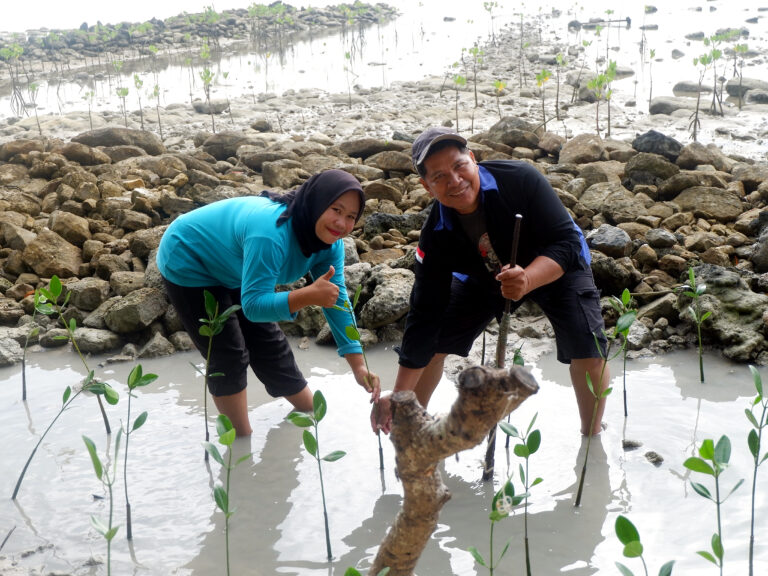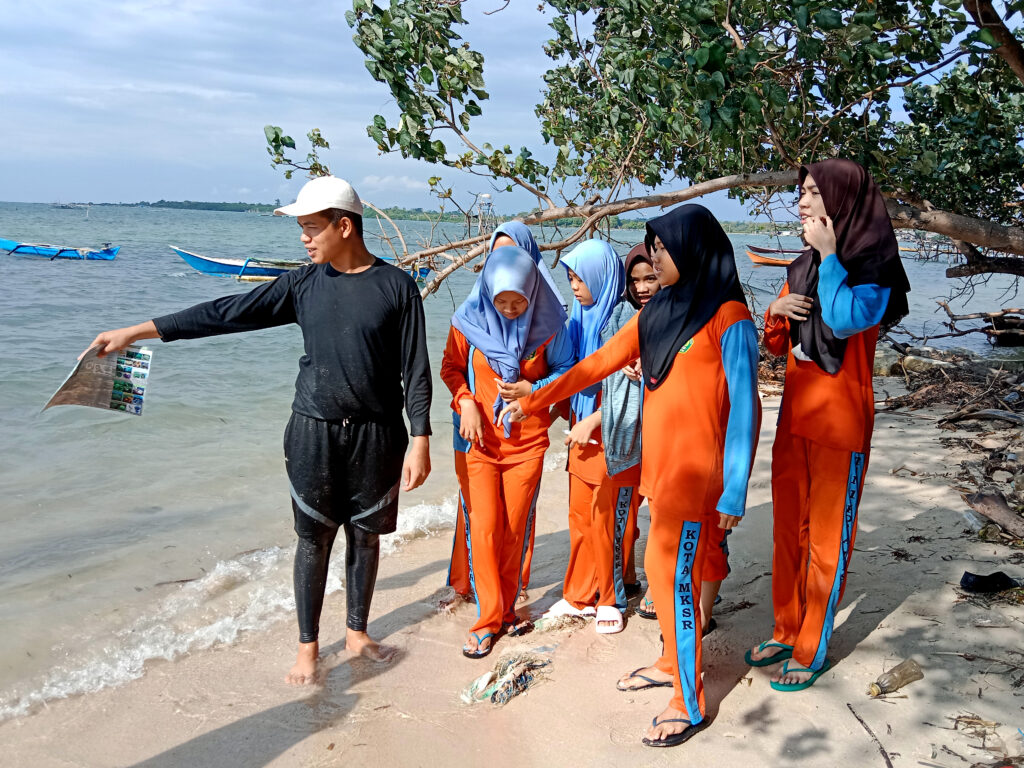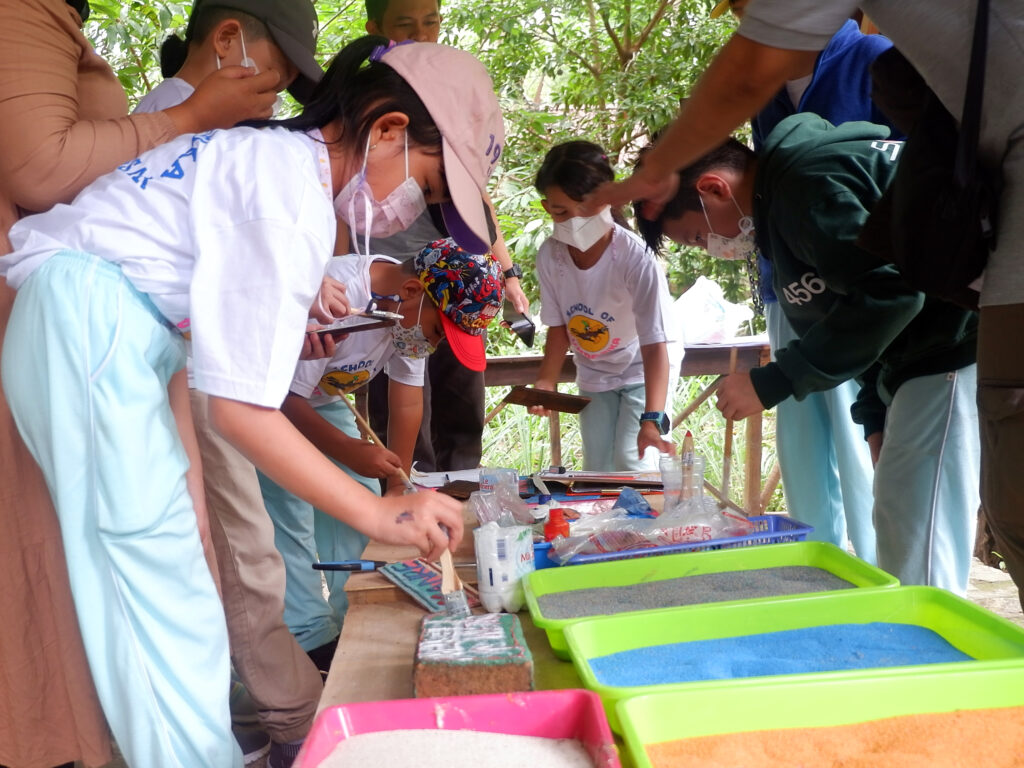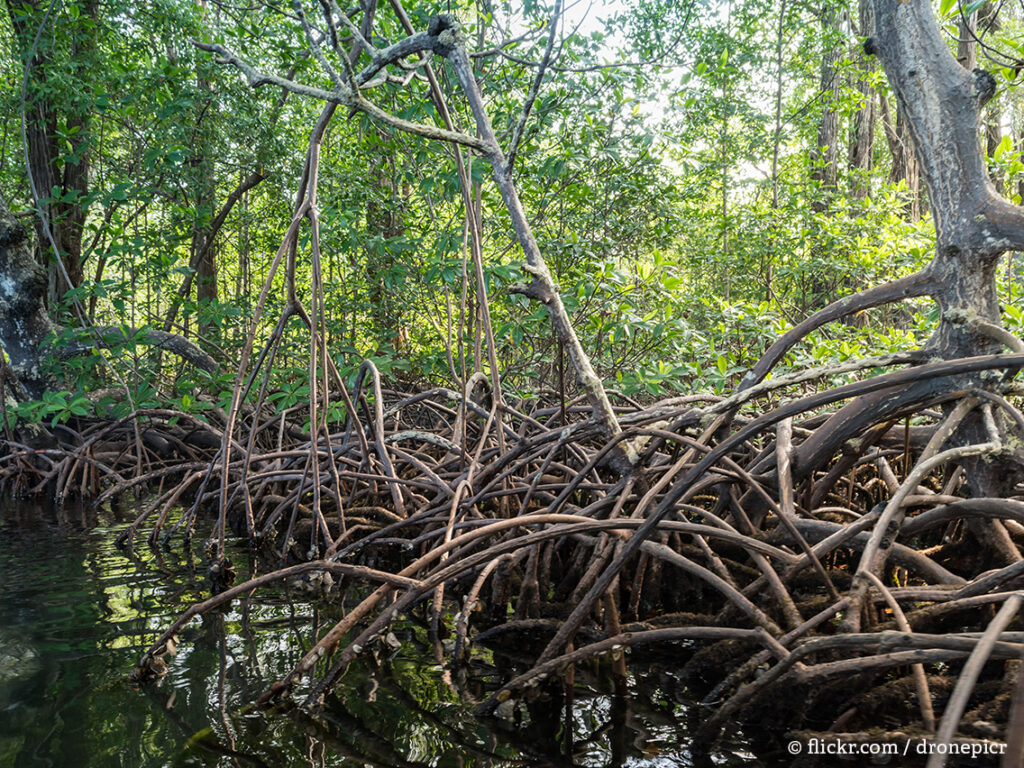Mangroves in Sulawesi

Mangroves in Sulawesi

Project accomplishments first half-year of 2022
- Various on-site workshops on topics such as marine ecosystems, reforestation with mangroves, waste
- Litter collection actions on the beach
- Reforestation actions of mangroves in coastal areas
- Renovation and improvement of the infrastructure in the center
- Implementation of various events, e.g. organization of the Biodiversity Day or the Conservation Day
- Construction of coastal protection measures

Sulawesi and environmental education
Sulawesi is one of over 17,000 islands in the island nation of Indonesia. With its 16 million inhabitants, Sulawesi is one of the main islands. The shape of the island is reminiscent of an octopus. The environmental education center Puntondo (PPLH Puntondo) is located in the southwest of this ramified island, directly at the sea. Among other activities, the center offers workshops, tours and learning days for children, youth and adult groups. The main topic of the work at PPLH Puntondo is the mangrove forests.

Mangrove forests
A mangrove forest consists various trees and shrubs that spread near the coast. Mangroves occur mainly in tropical zones and are strongly influenced by tides. Due to their location on the coast, the forests are often threatened because they are coveted for tourist purposes or for aquaculture (e.g. for shrimp farming). The disappearance of mangrove forests is tragic on many levels. Terrestrial and aquatic animals share this ecosystem. As a result, mangrove forests are very biodiverse and productive. Furthermore, they store 3 to 5 times more Co2 than other forests. They act as natural erosion control and the ecosystem services provided by mangrove forests are important livelihoods for countless people.
The Goal
The Environmental Education Center defines its vision as following: «The goal is to show how we can live together with nature in a simple way, using what nature provides us, thus sustaining the lives of people and nature.» We are pleased to be able to support the PPLH.



